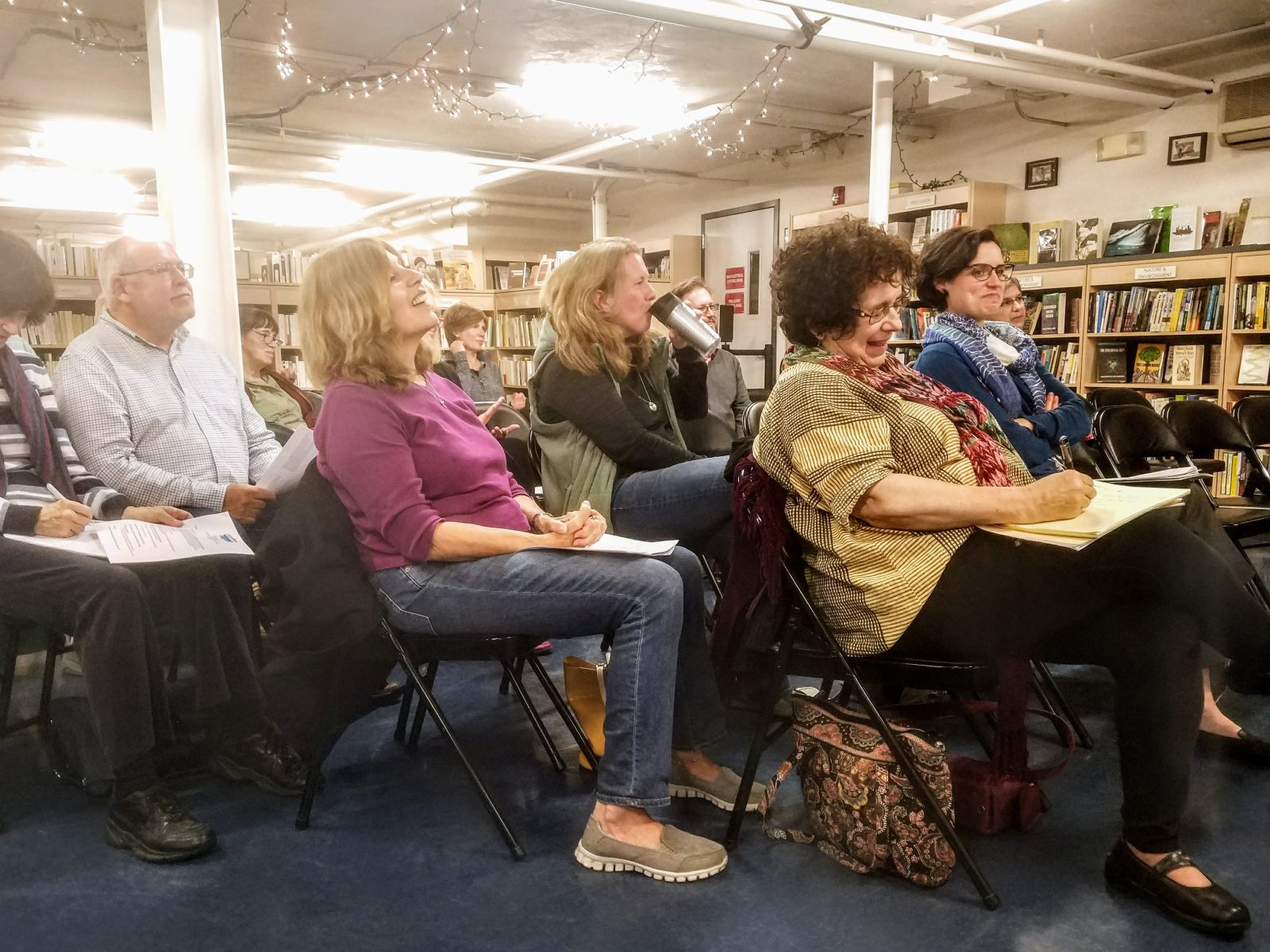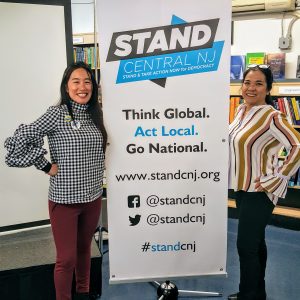Taking Back Our Power

“No one can wield power except as others yield power. The power that anyone holds over us originates with us – and can ultimately be reclaimed or redirected by us.” – Eric Liu, You’re More Powerful Than You Think
STAND CNJ’s recent general meeting featured a workshop built around that very claim: that we ARE indeed more powerful than we think, and that in order to create the kind of America we want, we need to reclaim our power. As grassroots activists, we aim to reclaim that power and redirect it through organizing. And, as all politics is local, we organize right here at home – with our neighbors, with friends who share our values, with others who face our same difficulties, and with people who share our vision for the future. STAND CNJ has crafted a process and format for this type of organizing, based on the knowledge drawing from the works of experienced organizers as outlined by Eric Liu, Citizen University; Jeffrey Stout, author of Blessed are the Organized; and the Organizing for Action manual (training from Barack Obama’s grassroots organization) We call our method the Power Huddle – blending the concept from the Women’s March organization of small-group “huddles” to discuss action, and the overarching goal of “taking back our power” to create the kind of town, state and nation we want.
Our Power Huddle workshop began with a discussion of power: what is it, what are its various sources, and the “laws of power” as outlined by Eric Liu. We spoke about the value of community organizing, and case studies where organizing led to solving problems where the balance of power started out extremely unbalanced. We then presented and discussed STAND CNJ’s methodology of the Power Huddle, which we define as a group problem-solving meeting where we (1) join with others to discuss an issue of mutual concern; (2) analyze who or what what or who has power over a problematic situation, using STAND’s Power Map model; (3) identify what power each of the Huddle members has, or can claim, in the situation; and (4) create a plan for how to harness the collective power of Huddle members to create change.
In our breakout session, groups first identified an issue of mutual concern to group members. Keeping with our motto – Think Global, Act Local, Go National – STAND created a table linking national issues with state and local actions that can be undertaken to address those issues. Groups then went through the Power Mapping process, and re-convened to discuss their analysis and potential action plans.

As grassroots activists, we believe that our power, and the results we seek, will grow out of organizing. STAND CNJ is committed to helping individuals and groups throughout our area to organize in pursuit of goals that support progressive values. It is through this kind of grassroots engagement and mobilization that we will not only resist the regressive agenda, but also create positive change. Eric Liu summarizes our feelings well:
“What looks like anger and disillusionment today among so many bottom-up movements…..is in fact a deeply optimistic surge. True alienation is deadly silent and sullen. The upheaval and ruckus of our times are hopeful at heart. People still believe change is possible.”
If you would like to create a Power Huddle of your own, reach out to us and we will help you get started. You don’t need to have a specific action or issue already identified; a Power Huddle can start with a group of friends or neighbors who are simply worried about the current direction in which this administration is taking our nation, and then use our national-to-local issues tool to identify what you want to tackle. We will also be holding this workshop again over the next couple of months, as well as a more detailed workshop that takes Power Huddles to the next level with the how-to’s of legislative advocacy. In the meantime, if you have 17 minutes and would like to get inspired, watch Eric Liu’s Ted talk, “Why Ordinary People Need to Understand Power”: http://www.citizenuniversity.us/video/?tax=eric-liu.





